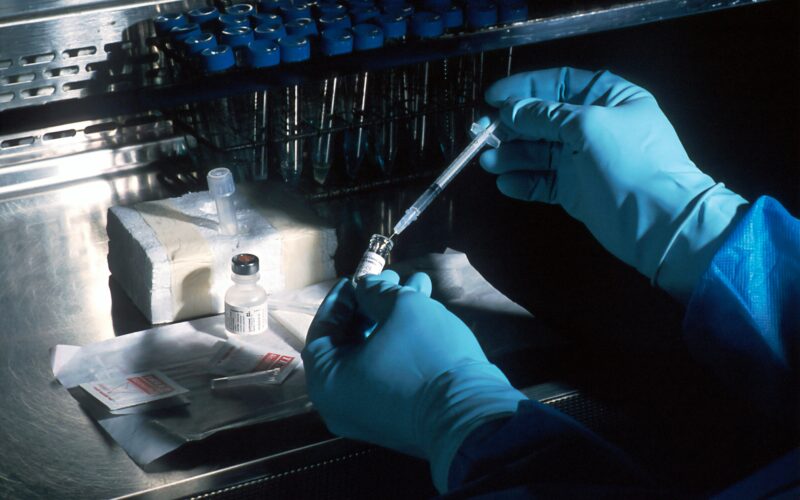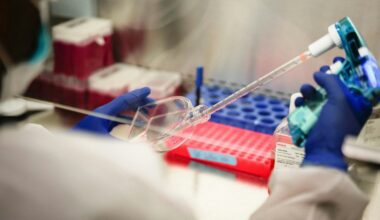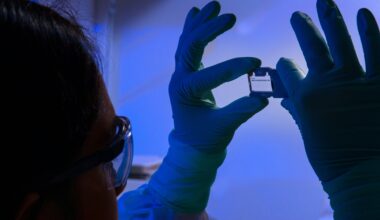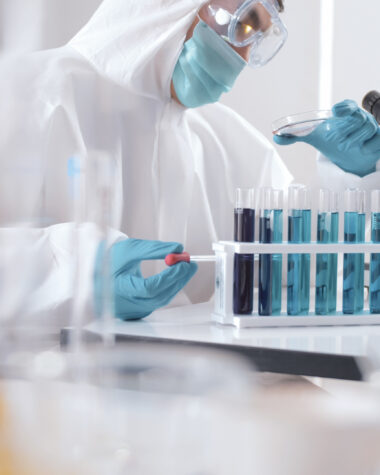Kymera Therapeutics (NASDAQ:KYMR) is a clinical-stage biopharmaceutical company at the forefront of one of the most exciting breakthroughs in modern medicine—targeted protein degradation (TPD). Founded in 2016 and headquartered in Watertown, Massachusetts, the company is pioneering a new generation of oral small molecule therapies that eliminate disease-causing proteins at their source. Rather than merely inhibiting protein function like conventional drugs, Kymera’s degrader medicines leverage the body’s natural protein recycling system to selectively degrade and remove pathogenic proteins, offering a fundamentally different and potentially more effective treatment paradigm for a wide range of serious diseases.
At the core of Kymera’s innovation is its proprietary Pegasus™ platform, which enables the design and development of highly selective protein degraders. This technology allows the company to pursue disease targets that were previously considered undruggable, opening doors to new treatment possibilities in immunology, inflammation, oncology, and beyond. Since its inception, Kymera has built a pipeline of first-in-class and best-in-class degrader candidates aimed at transforming the standard of care for patients with chronic, debilitating, and life-threatening conditions.
Kymera achieved a major industry milestone by becoming the first company to advance a degrader into clinical development for immunological diseases. Its lead programs, including KT-621 for atopic dermatitis and asthma, KT-474 for hidradenitis suppurativa, and KT-295 for autoimmune disorders, are generating growing interest across the biotech and pharmaceutical industries. In particular, KT-621, a STAT6 degrader, has shown strong promise in early-stage clinical trials, achieving Dupixent-like biomarker reduction with favorable safety and tolerability. These findings not only support the therapeutic potential of Kymera’s platform but also position it as a serious competitor in the multi-billion dollar immunology market.
In addition to its robust internal pipeline, Kymera has attracted major pharmaceutical partners, including a high-profile collaboration with Gilead Sciences to co-develop CDK2-targeting protein degraders for oncology. These strategic partnerships serve as strong validation of Kymera’s scientific leadership and the commercial viability of its technology. The company’s business model balances wholly owned programs with partnered assets, enabling it to scale innovation while maintaining long-term value creation.
Kymera also maintains a solid financial foundation to support its ambitious growth plans. With over $850 million in cash as of Q1 2025 and a recently completed follow-on offering that raised an additional $250 million, the company has a multi-year runway to fund its clinical programs and platform expansion. Recognized as one of Boston’s best places to work, Kymera combines a mission-driven culture with world-class scientific talent to drive the next wave of drug discovery and development.
As the field of targeted protein degradation matures, Kymera Therapeutics stands out as a true pioneer with first-mover advantage, a diversified clinical pipeline, validated partnerships, and a vision to reshape the future of medicine by degrading the root causes of disease.
A Game-Changer in Immunological Therapeutics
Kymera’s focus on oral small molecule degraders has placed it in a distinct category among biotechnology innovators. Its bold and ambitious strategy is centered on building a robust pipeline of first-in-class and best-in-class therapeutics aimed at autoimmune, inflammatory, and oncologic conditions. The company made history by advancing the first-ever degrader into the clinic for immunological diseases, and its rapid clinical progress continues to catch the attention of analysts, institutional investors, and Big Pharma alike. Kymera’s team has earned accolades beyond the lab as well — with the company being recognized repeatedly as one of Boston’s top workplaces, an achievement that speaks volumes about its leadership culture and long-term sustainability.
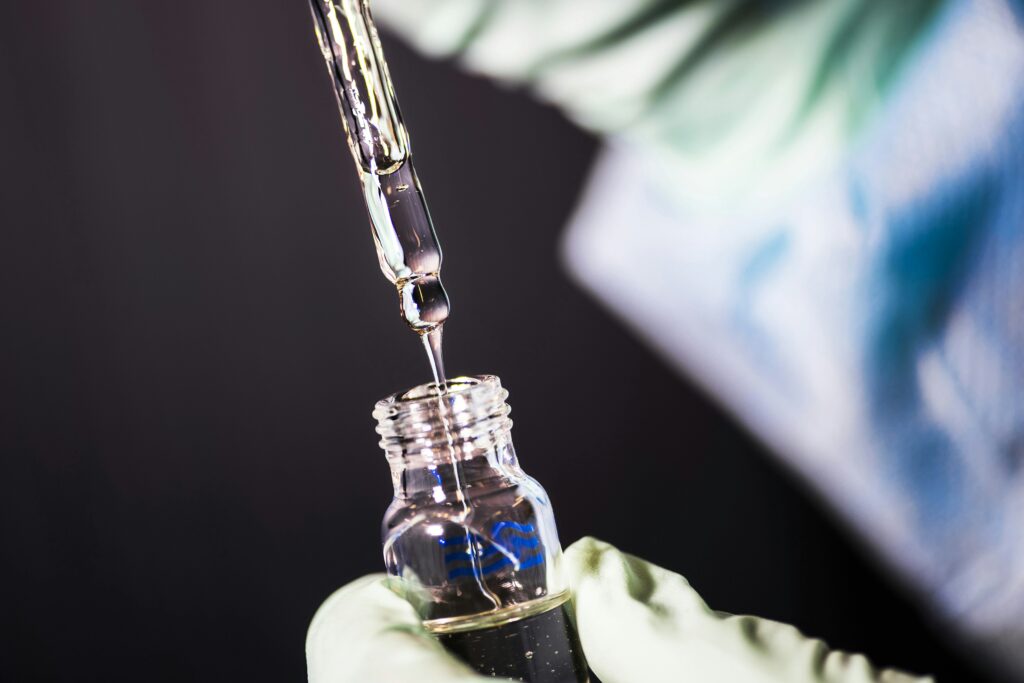
CHECK THIS OUT: Exact Sciences (EXAS) Just Made Cancer Detection 100x Easier! and Soleno Therapeutics (SLNO): The Biotech Company That Could Make You Rich.
KT-621: Kymera’s Most Promising Clinical Candidate
Investor sentiment has grown increasingly bullish in 2025, especially following encouraging developments around its leading clinical candidate, KT-621, a STAT6 degrader being developed for Th2-mediated inflammatory conditions such as asthma and atopic dermatitis. The early clinical data released in Q2 2025 signaled a strong safety profile with promising biomarker reductions, raising expectations for future clinical milestones. Market analysts are already forecasting potential blockbuster status for KT-621, with projected annual sales reaching between $1.3 billion to $2.3 billion by 2035. These projections are further fueling the investment case, especially in light of recent upgrades from top institutions such as Morgan Stanley, Bank of America, and H.C. Wainwright, who have set price targets ranging from $52 to as high as $79.
A Deep and Diversified Pipeline with Multiple Catalysts
The company’s pipeline doesn’t stop at KT-621. Kymera is concurrently advancing several other high-potential candidates including KT-474, an IRAK4 degrader for hidradenitis suppurativa and atopic dermatitis, which is now in Phase 2b trials. Another promising candidate, KT-295, a TYK2 degrader, is expected to enter clinical trials in Q4 2025. The company’s strategic decision to diversify across multiple immunology targets not only broadens its addressable market but also creates a buffer against individual trial setbacks. Moreover, its recent partnership with Gilead Sciences, a deal worth up to $750 million for the co-development of a CDK2-targeting degrader for oncology, validates Kymera’s technological edge and opens new value-creation opportunities beyond immunology.
Strong Financial Position with Multi-Year Runway
Financially, Kymera is well-positioned to maintain its momentum. As of Q1 2025, the company had approximately $850 million in cash on its balance sheet — a war chest that is expected to provide sufficient runway into mid-2027. This strong liquidity position reduces dilution risk and enables Kymera to accelerate clinical development across its expanding pipeline. Furthermore, the company recently completed a successful follow-on offering that brought in an additional $250 million, reflecting strong investor demand and confidence in its long-term trajectory.
Anticipation Builds for Q2 2025 Earnings and Clinical Updates
All eyes are now on Kymera’s upcoming Q2 2025 earnings report scheduled for August 11, 2025. Investors are keenly awaiting updates on enrollment timelines, regulatory feedback, and potential guidance for KT-621’s Phase 1b and 2b trials. Additionally, management is expected to provide insight into the anticipated initiation of the KT-295 Phase 1 trial and any progress regarding undisclosed pipeline candidates, which are rumored to be announced in the latter half of the year. These near-term catalysts could serve as major inflection points, further elevating Kymera’s market profile.
Attractive Valuation with Strong Analyst Coverage
The valuation case for Kymera remains compelling, especially when viewed through the lens of projected revenue growth and the potential for multiple shots on goal in its pipeline. With shares trading around the $41–$44 range, the company presents a significant upside opportunity for long-term biotech investors. Analyst consensus indicates a fair value of at least $56–$60, with several price targets implying 30%–40% upside from current levels. Technical indicators also reveal a strong Relative Strength (RS) Rating of 92, signaling leadership strength in the broader biotech sector.
Navigating Risks with Strategic Diversification
Despite the clear upside potential, investors must remain mindful of the inherent risks associated with clinical-stage biotech companies. These include uncertainties surrounding clinical trial outcomes, regulatory hurdles, and eventual market adoption. However, Kymera’s strategy of broad pipeline diversification, robust financials, high-value collaborations, and technological leadership in TPD positions it favorably against these risks.
Final Thoughts: A High-Conviction Biotech for Long-Term Gains
In conclusion, Kymera Therapeutics represents a rare blend of clinical innovation, strategic execution, and financial resilience in the highly competitive biotech landscape. With a strong platform, pipeline depth, and multiple near-term milestones, the company is well on its way to becoming a leader in immunology and beyond. For investors seeking asymmetric upside in a rapidly maturing therapeutic space, Kymera offers a high-conviction opportunity with catalysts that could unlock transformative shareholder value in the quarters ahead.
READ ALSO: Johnson & Johnson (JNJ) can be the Next Trillion-Dollar Stock and Boston Scientific (BSX) Just Signed a $45M Deal—Here’s What It Means for Investors.
